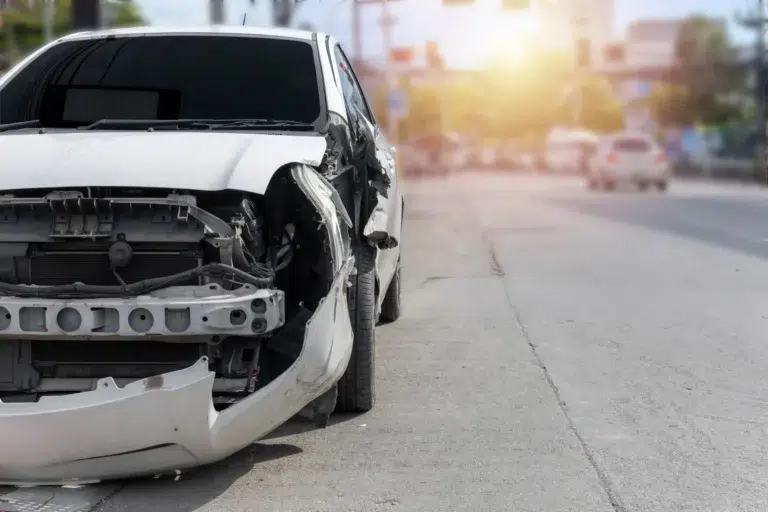Responding to a Lawyer’s Letter After an Injury Claim in Florida
What To Do After Receiving a Lawyer’s Letter About an Injury Claim in Florida?
When you receive a letter from a lawyer representing someone who claims to have suffered an injury, it can be a moment filled with uncertainty and concern, especially if you are in Florida where personal injury laws are complex. Understanding how to respond effectively is crucial in setting the tone for your defense. This blog will guide you through the essential steps and considerations to effectively handle such a situation.
Read and Analyze the Letter Carefully
Take the time to read the letter thoroughly. Understand what is being claimed and what the plaintiff is seeking. Look for key details like:
- The nature of the alleged injury
- The circumstances under which the injury occurred
- Any demands or requests made by the plaintiff
Understand the Gravity of a Personal Injury Claim
The first step upon receiving a lawyer’s letter is to recognize its significance. This document is not just routine correspondence; it’s a formal notification that could potentially lead to legal proceedings against you. The types of claims that can be brought forward in such cases vary, but they typically revolve around incidents leading to personal injury. These can include, but are not limited to:
- Automobile Accidents: Where you may be alleged to have been at fault in a vehicle collision resulting in injuries. Seeking an experienced car accident defense attorney can offer you priceless insight.
- Slip and Fall Incidents: Claims arising from someone getting injured on your property, perhaps due to negligence in maintaining safe conditions. These are often referred to as premises liability defense cases.
- Dog Bites/Animal Attacks: If you are a pet owner, particularly of dogs, you might face claims if your pet injures someone. Dog bite defense cases often revolve around issues of negligence or violation of local animal control laws.
- Wrongful Death Claims: In the most tragic of circumstances, if someone dies as a result of an accident or incident where you are implicated, their family might bring a wrongful death claim against you. Florida wrongful death cases often involve complex legal and emotional factors.
- Subrogation Claims: Subrogation defense claims occur when an insurance company seeks to recover funds they paid out due to an incident where another party is deemed responsible. For instance, if your insurance covers damages in a car accident and later seeks to recover the costs from the at-fault driver, that’s subrogation.
Ignoring the letter, or not taking it seriously, can have serious legal consequences. It’s essential to approach this situation with the gravity it deserves and prepare for the potential legal challenges that may arise from these various types of claims.
Contact Your Insurance Provider
When faced with a potential legal claim, one of the first steps you should take is to contact your insurance provider, particularly if you have liability insurance that might cover the incident. This step is crucial for several reasons:
- Notification of Potential Claim: Insurance policies typically require policyholders to promptly report any incidents that could lead to a claim. Delay in reporting can sometimes be grounds for an insurer to deny coverage.
- Assessment and Coverage Confirmation: Your insurer will assess the incident against your policy to determine whether the situation falls under your coverage. They’ll clarify aspects like coverage limits, deductibles, and any specific policy exclusions that might apply.
- Legal Representation: In many cases, if the incident is covered under your policy, your insurance provider may arrange for legal representation. This is particularly important in liability cases where the stakes can be high. The legal team provided by your insurer will have expertise in handling similar claims and can navigate the legal complexities on your behalf.
- Record Keeping and Documentation: Your insurance provider will start a file on the incident, which is essential for record-keeping and future reference. It’s important to provide them with all relevant information and documentation you have, as this will be crucial in their assessment and handling of the claim.
- Liaison with Other Parties: Your insurance company may also interact directly with the lawyer or the insurance provider of the other party involved in the incident. This can include negotiations for settlements or other legal discussions, reducing the direct pressure on you.
Contacting your insurance provider is a key step in the process. They not only offer potential coverage and legal assistance but also serve as an important advisor and mediator in the situation. Acting promptly and keeping them informed can significantly impact the effectiveness of your response to a legal claim.
Preserve Evidence
When facing a legal claim, preserving evidence is crucial, especially if the incident is recent. Ensuring you have a comprehensive collection of relevant evidence can significantly impact your defense strategy. Here’s what to focus on:
- Photos or Videos of the Incident Location: Visual documentation is invaluable. Take clear photos or videos of where the incident occurred from various angles and perspectives. Include any relevant details that might demonstrate conditions at the time of the incident, such as lighting, weather conditions, or potential hazards. If there have been changes to the location since the incident, document these differences as well.
- Correspondence Related to the Event: Gather any form of communication that pertains to the incident. This could include emails, text messages, voicemails, or written notes. Correspondence that occurs immediately after the incident can be particularly telling, as it may contain initial reactions or admissions that are relevant to the case.
- Witness Information: Identifying and securing statements from witnesses can be pivotal. Collect names, contact details, and, if possible, written statements or accounts of the incident from anyone who might have seen what happened or has relevant information. Remember, witness recollections are often more accurate when obtained promptly after the incident.
- Additional Documentation: Depending on the nature of the incident, other types of evidence might be relevant. For example, if it’s a workplace accident, internal incident reports or maintenance logs could be crucial. In cases of a car accident, a copy of the police report, insurance claim information, and medical reports if injuries were sustained, are important.
Properly preserving evidence involves not just collecting it, but also ensuring its integrity. Store it securely, create backups if necessary, and avoid altering or discarding anything that could be pertinent. A well-documented evidence trail can significantly strengthen your position and provide your attorney with essential tools for your defense.
Florida Civil Counsel, P.A.: Your Florida Personal Injury Defense Attorneys
Being the recipient of a lawyer’s letter for a personal injury claim can be daunting. However, with the right approach and legal support, you can navigate this situation effectively. Remember, the steps you take immediately after receiving the letter can significantly impact the outcome of your case. Stay informed, be proactive, and seek the right legal assistance to ensure your rights and interests are protected.





